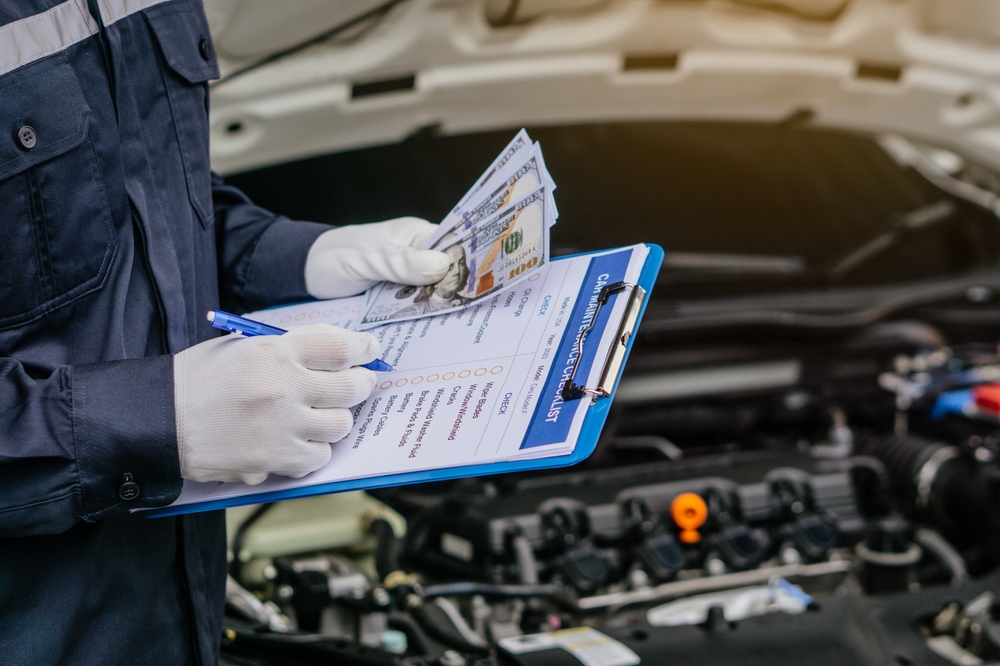
Defective Vehicle Parts
Protecting Your Rights After a Defective Vehicle Part Causes a Tennessee Traffic Accident
When Vehicle Parts Fail on Tennessee Roads
Vehicle defects can turn routine drives into catastrophic accidents. When brake failures, steering malfunctions, tire blowouts, or other defective auto parts cause traffic accidents on Tennessee roads, victims face both serious injuries and complex legal challenges involving product liability law.
If you've been injured in a traffic accident caused by a defective vehicle part in Tennessee, you may have claims against manufacturers, distributors, and other parties in the automotive supply chain.
Defective vehicle parts accidents are a serious type of traffic accident in Tennessee. Our attorneys also handle related cases including car accidents and truck accidents.
What Counts as a Defective Vehicle Part?
Defective vehicle parts that commonly cause traffic accidents include:
Brake System Failures:
- Master cylinder and brake line defects
- Anti-lock brake system (ABS) malfunctions
- Brake pad and rotor manufacturing defects
- Brake fluid leaks and contamination
Steering System Defects:
- Power steering pump failures
- Steering column and wheel defects
- Electronic steering assist malfunctions
- Tie rod and steering linkage failures
Tire and Wheel Defects:
- Tread separation and blowouts
- Sidewall failures and defects
- Wheel rim cracks and failures
- Defective tire pressure monitoring systems
Engine and Transmission Problems:
- Sudden acceleration from throttle defects
- Engine fires from fuel system defects
- Transmission failures causing loss of power
- Electronic control module malfunctions
Safety System Failures:
- Airbag deployment failures or malfunctions
- Seatbelt release or failure under stress
- Electronic stability control defects
- Defective sensors and warning systems
Suspension and Axle Defects:
- Strut and shock absorber failures
- Axle breaks and differential problems
- Ball joint and control arm defects
- Electronic suspension system failures
Types of Product Defects in Traffic Accidents
Tennessee product liability law recognizes three types of defects:
Design Defects:
- The part was designed in a way that makes it unreasonably dangerous
- Alternative safer designs were feasible
- The risks outweigh the benefits of the current design
Manufacturing Defects:
- Individual parts that deviate from the intended design
- Production errors that make parts more dangerous
- Quality control failures during assembly
Warning Defects (Failure to Warn):
- Inadequate warnings about known risks
- Missing instructions for proper use and maintenance
- Failure to warn about recall or safety issues
How Defective Parts Cause Traffic Accidents
Brake Failures:
- Rear-end collisions from inability to stop
- Intersection accidents from brake system failure
- Loss of control on hills and curves
- Multi-vehicle accidents from sudden brake loss
Steering Defects:
- Single-vehicle crashes from loss of steering control
- Head-on collisions from steering pulling
- Rollover accidents from sudden steering failure
- Lane departure from electronic system malfunctions
Tire Defects:
- Blowouts causing loss of vehicle control
- Rollover accidents from tire failure at highway speeds
- Multi-vehicle accidents from sudden tire failure
- Hydroplaning from defective tread design
Engine/Transmission Failures:
- Sudden acceleration causing rear-end or head-on crashes
- Stalled vehicles creating highway hazards
- Engine fires spreading to passenger compartment
- Loss of power in traffic causing rear-end collisions
Tennessee Product Liability Laws
Tennessee product liability law provides several theories for defective vehicle parts claims:
Strict Liability:
- Manufacturers liable regardless of fault if product was defectively designed or manufactured
- Must prove the defect existed when product left the defendant
- Product must be unreasonably dangerous for its intended use
Negligence:
- Failure to exercise reasonable care in design, manufacturing, or testing
- Inadequate quality control and inspection procedures
- Failure to warn about known defects or recalls
Breach of Warranty:
- Violation of express warranties about product performance
- Breach of implied warranties of merchantability
- Fitness for particular purpose warranties
Key legal considerations:
- One-year statute of limitations from date of injury
- Modified comparative fault system applies
- Multiple defendants often involved in the supply chain
Who Can Be Held Liable?
Tennessee law allows claims against all parties in the chain of commerce:
Manufacturers:
- Original Equipment Manufacturers (OEMs)
- Aftermarket parts manufacturers
- Component and parts suppliers
Distributors and Retailers:
- Auto parts stores and suppliers
- Dealerships and automotive retailers
- Online parts sellers and distributors
Service Providers:
- Repair shops that installed defective parts
- Mechanics who performed inadequate work
- Shops that failed to properly install recall repairs
Other Parties:
- Vehicle manufacturers for OEM defects
- Fleet owners and lessors in commercial cases
- Government entities for defective parts on public vehicles
Challenges in Tennessee Vehicle Defect Cases
Technical Complexity:
- Expert testimony required to prove defects
- Complex engineering and manufacturing analysis
- Understanding of automotive systems and federal regulations
Causation Issues:
- Multiple potential causes of traffic accidents
- Weather, road conditions, and driver factors
- Pre-existing vehicle damage or modifications
Evidence Preservation:
- Defective parts may be destroyed in accidents
- Need for immediate inspection and testing
- Maintenance records and recall notices
Corporate Defense Resources:
- Well-funded manufacturers with experienced defense teams
- Complex discovery and document production
- Multiple defendants trying to shift blame
What Compensation Can You Recover?
Tennessee defective vehicle parts accident victims may be entitled to:
Economic Damages:
- Medical expenses from traffic accident injuries
- Vehicle repair or replacement costs
- Lost wages and reduced earning capacity
- Future medical costs and rehabilitation
- Property damage and towing expenses
Non-Economic Damages:
- Pain and suffering from accident injuries
- Emotional distress and trauma
- Loss of enjoyment of life
- Permanent disability and scarring
- Loss of consortium for spouses
Punitive Damages:
- Available when manufacturer acted with gross negligence
- Concealing known defects from consumers
- Continuing to sell products known to be dangerous
- Cover-ups and destruction of safety evidence
The Role of Vehicle Recalls
Before Recall Issued:
- Recall announcements can provide strong evidence of defects
- Demonstrates manufacturer knowledge of problems
- NHTSA investigations and consumer complaints
- Pattern of similar accidents and failures
After Recall Issued:
- May still have claims if recall was inadequate
- Defective recall repairs can create additional liability
- Failure to reach all affected vehicle owners
- Continuing accidents despite recall efforts
Recall Limitations:
- Not all defects result in recalls
- Recalls often come after accidents occur
- Some recalls don't adequately address safety risks
- Limited scope may miss related defects
Steps to Take After a Defective Parts Traffic Accident
Immediate actions:
- Ensure safety and call 911 for medical and police response
- Preserve the vehicle and defective part if possible
- Document everything with photos and videos
- Get witness information from other drivers and passengers
- Seek medical attention for all injuries
- Avoid giving statements to insurance companies about the cause
Critical follow-up:
- Contact attorney immediately to preserve evidence
- Don't allow vehicle repairs until inspection completed
- Obtain maintenance records and recall notices
- Document all medical treatment and expenses
- Preserve any warnings or product literature
Why Professional Legal Help Is Essential
Defective vehicle parts cases are among the most complex personal injury claims:
Technical Expertise Required:
- Automotive engineering and manufacturing knowledge
- Product liability law and federal regulations
- Accident reconstruction and causation analysis
Resource Intensive:
- Expensive expert witnesses and testing
- Extensive discovery from corporate defendants
- Complex litigation against well-funded opponents
Time Sensitive:
- Tennessee's one-year statute of limitations
- Evidence preservation requirements
- Need for immediate investigation and inspection
Multiple Legal Theories:
- Product liability, negligence, and warranty claims
- Understanding which theories apply to your case
- Coordinating claims against multiple defendants
Frequently Asked Questions About Tennessee Vehicle Defect Traffic Accidents
How do I know if my traffic accident was caused by a defective part?
Signs include unexpected mechanical failures, parts breaking without obvious cause, or safety systems not working as designed. A thorough investigation by automotive experts is usually needed to determine if a defect caused your accident.
Can I sue for a defective part even if my vehicle wasn't recalled?
Yes, you can file a product liability claim even without a recall. Many defects are never recalled, and recalls often come after accidents have occurred. The absence of a recall doesn't mean the part wasn't defective.
What if I was speeding when the defective part failed?
Under Tennessee's comparative fault system, speeding may reduce your compensation but doesn't automatically prevent recovery. The key question is whether the defect would have caused problems regardless of your speed.
How long do I have to file a defective vehicle parts claim in Tennessee?
Tennessee has a one-year statute of limitations for product liability claims from the date of your traffic accident. This makes it crucial to consult with an attorney immediately after any accident involving potential vehicle defects.
Hold Manufacturers Accountable
When defective vehicle parts cause traffic accidents, manufacturers and other parties in the supply chain must be held accountable for putting dangerous products on Tennessee roads. Don't let them escape responsibility for their negligence.
Contact AskLitigation immediately for a free consultation. We have extensive experience with Tennessee product liability and traffic accident cases, understand the complex technical and legal issues involved, and have the resources to take on major automotive manufacturers.
Time is critical in defective parts cases. Evidence disappears, witnesses' memories fade, and Tennessee's one-year statute of limitations means every day counts. Call today to protect your rights and ensure you receive the compensation you deserve.
Browse Articles for "Defective Vehicle Parts" in Tennessee:
Start Your FREE Consultation
Complete the form for a Free Consultation. No upfront fees, swift action, and we’re only paid when we succeed for you.
Ask Us If You Qualify
We’re here to help you take on your fight—whether it’s a car accident, a dangerous drug, or a workplace injury gone wrong. One call starts it all, and we’re with you every step, no upfront cost required.
- Free Case Review
- No Fees Until Victory
- Millions Recovered
- Personal Strategy
- California Coverage
- Relentless Case Pursuit

